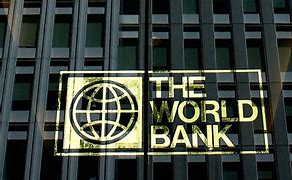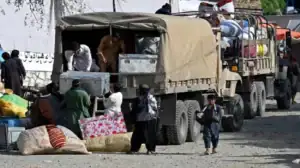Islamabad, Nov 18: Govt Requests World Bank to Restructure $200 Million Punjab Project
The government has approached the World Bank to restructure the Punjab Human Capital Investment Project (PHCIP), which is valued at $200 million, to address delays caused by COVID-related school and Basic Health Unit (BHU) closures.
Official documents indicate that the government has proposed extending the IDA credit closing date from June 30, 2025, to June 30, 2026, to allow time for the project to recover.
While most physical targets are on track, the extension would enhance the quality of outcomes, including completing the first 1,000 days for Conditional Cash Transfer (CCT) beneficiaries and continuing teacher training for Early Childhood Care and Education (ECCE) schools.
The extension also provides additional time to fully implement the Social Protection (SP) Integrated Management Information System (IMIS) and improve social mobilization, beneficiary payment services, and staff training to better reach pregnant and lactating women.
Due to favorable exchange rate variations, the total project allocation of JPY 21.73 billion has increased by 22%, from approximately Rs. 32 billion to Rs. 39 billion, supporting the effective execution of the project.
In its fifth year, PHCIP aims to enhance maternal and newborn child healthcare (MNCH) services, ECCE, and livelihood opportunities for vulnerable populations in specific districts of Punjab.
At the beginning of the project, the total IDA credit was JPY 21.7 billion (equivalent to $200 million), but exchange rate fluctuations have reduced the US dollar value to around $154 million, while the Pakistani Rupee equivalent has increased to Rs. 40 billion.
Following the 2022 floods, the Punjab Government (GoPb) recognized the need for restructuring the project, adding new components and adjusting design parameters based on implementation experiences.
The restructuring includes the repair of school facilities damaged in the floods, which impacted ECCE activities. The eligibility criteria for CCT and Early Intervention (EI) components have also been revised to streamline the registration process for beneficiaries.
Given the extended physical targets and the favorable exchange rate, GoPb has requested a reallocation of project funds and an additional year to improve the quality aspects of the project. The restructuring proposal was approved by the Executive Committee of the National Economic Council (ECNEC) on August 9, 2023.
The Federal Government submitted a formal restructuring request to the World Bank on February 2, 2024, following a request from GoPb on December 26, 2023. A second request for a one-year no-cost extension was made on July 11, 2024.
The restructuring, which is retroactively effective from August 9, 2023, aligns with government approvals and includes retroactive financing of JPY 120 million for the new Flood Response Component.
To streamline decision-making, the Chief Executive Officer of the Punjab Social Protection Authority (PSPA) will assume the role of ex-officio Project Director, and the Primary and Secondary Healthcare Department (PSHD) will establish the Project Management and Implementation Unit (PSHDPMIU). This change does not affect PSHD’s role as the main implementing agency.
Additionally, the project will update its design parameters based on lessons learned. For example, eligibility for EI beneficiaries will now include young couples aged 18-35 from Benazir Income Support Program (Kafalat) beneficiary households.
The criteria for CCT beneficiaries will now include pregnant and lactating women or parents of children under 2 years old, all from the project districts and using public health services.









